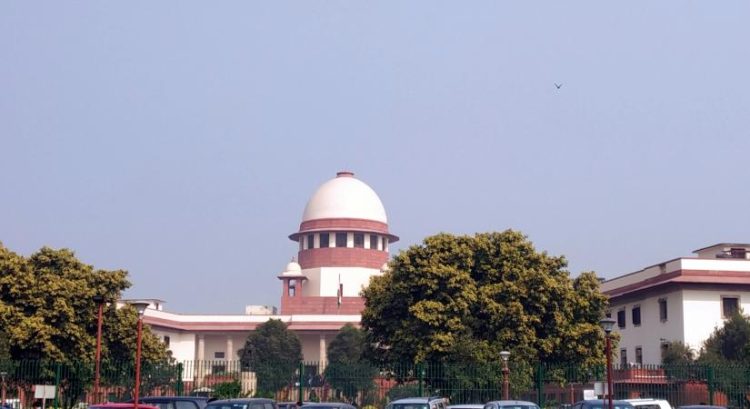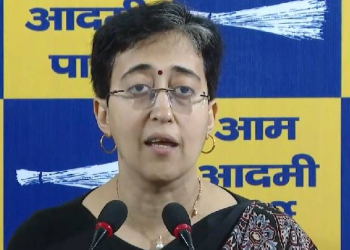New Delhi: The Supreme Court on Thursday upheld the constitutional validity of Section 6A of the Citizenship Act, 1955, which was inserted to give effect to the Assam Accord and formed the basis of the National Register of Citizens (NRC) in Assam in 2019.
A Constitution Bench, headed by CJI D.Y. Chandrachud, was dealing with a clutch of petitions challenging Section 6A of the Citizenship Act 1955, on the ground that it violates Articles 6,7,14, 29 and 355 of the Constitution.
In December last year, the five-judge Bench, also comprising Justices Surya Kant, M.M. Sundresh, J. B. Pardiwala, and Manoj Misra, reserved its decision after hearing oral arguments from both sides.
In his opinion, CJI Chandrachud held that Section 6A of the Citizenship Act does not have the effect of amending Articles 6 and 7 of the Constitution, which prescribe a cut-off date for conferring citizenship for migrants from East and West Pakistan at the “commencement of the Constitution” (January 26, 1950).
“Section 6A of the Citizenship Act confers citizenship from January 1, 1966, for those who migrated before that date. Those who migrated between January 1, 1966, and March 24, 1971, are conferred citizenship upon the completion of ten years from the date of detection as a foreigner,” he opined, adding that Section 6A confers citizenship from a later date to those who are not covered by Articles 6 and 7 of the Constitution.
Further, CJI Chandrachud said that the petitioners have been unable to prove that the ability of the Assamese to take steps to protect their culture is violated by the provisions of Section 6A, while holding that the impugned provisions do not violate Article 29(1) of the Constitution, which guarantees the right to take steps to protect the culture, language and script of a section of citizens.
On similar lines, the concurring opinion rendered by Justice Surya Kant, on behalf of himself and Justices Sundresh and Misra, said that Section 6A falls within the bounds of the Constitution and does not contravene the foundational principles of fraternity.
However, Justice Kant flagged the ongoing influx of migrants through various border states and called for more robust policy measures to curb illicit movements and enhance border regulation.
“Nevertheless, it is imperative to acknowledge and address the valid concerns raised by the petitioners regarding the persistent immigration in the State of Assam post-March 25,1971. Although Section 6A conferred citizenship rights exclusively to immigrants arriving before this cut-off date, there seems to still be an ongoing influx of migrants through various border States of India,” he said. Justice Kant said that due to porous borders and incomplete fencing, unceasing migration imposes a significant challenge and requires more robust policy measures to curb illicit movements and enhance border regulation.
On the other hand, Justice Pardiwala, in his minority opinion, struck down Section 6A with prospective effect. “Section 6A being manifestly arbitrary, temporally unreasonable and demonstrably unconstitutional cannot be allowed to continue for all times to come. Hence, in my opinion, it would be appropriate to declare Section 6A as unconstitutional with prospective effect,” ruled Justice Pardiwala, clarifying that the benefit which has already been derived by the immigrants in Assam will not be taken away.
In substance, the Supreme Court held that immigrants who entered Assam prior to 1966 are deemed citizens, immigrants who entered between the cut-off dates of January 1, 1966, and March 25, 1971, can seek citizenship subject to the eligibility conditions prescribed in Section 6A, and immigrants who entered Assam on or after March 25, 1971, are not entitled to the protection conferred under Section 6A and declared to be “illegal immigrants”.
Section 6A has become redundant with respect to those immigrants who have entered Assam on or after March 25, 1971, held the top court, ordering the deportation of the illegal immigrants.
Issuing a slew of directions to restrict illegal immigration post-1971, the SC said that while the statutory scheme of Section 6A is constitutionally valid, there is inadequate enforcement of the same, leading to the possibility of widespread injustice.
It directed that provisions of the Immigrants (Expulsion from Assam) Act, 1950 should be read into Section 6A for the purpose of identification of illegal immigrants.
Noting that the statutory machinery and tribunals tasked with the identification and detection of illegal immigrants or foreigners in Assam are inadequate, the Constitution Bench said that constant monitoring by the top court is necessitated because “implementation of immigration and citizenship legislations cannot be left to the mere wish and discretion of the authorities”.
The Constitution Bench directed that the matter be placed before the Chief Justice of India (CJI) for the constitution of a bench to monitor the implementation of its directions. It referred to the statement made on behalf of the Union government that illegal immigrants entered the country in a clandestine and surreptitious manner, and therefore, it was not possible to collect accurate data on such people.
The top court, in the course of oral hearing of the arguments, had called for a common affidavit from the Union and Assam governments about the number of Bangladeshi immigrants granted citizenship under sSection 6A in Assam between January 1, 1966, and March 25, 1971. The amended Section 6A provided that “all persons of Indian origin who came before the 1st day of January 1966 to Assam from the specified territory (including such of those whose names were included in the electoral rolls used for the General Election to the House of the People held in 1967) and who have been ordinarily resident in Assam since the dates of their entry into Assam shall be deemed to be citizens of India as from the 1st day of January 1966”.
(IANS)
















